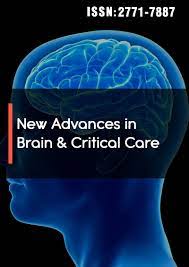Investigating a Clinical Case of Deluded Gustatory Perception
Abstract
Shweta Kalita, Nikita Mehdiratta, Drushti Birwatkar and Alan R. Hirsch
Introduction: Hypergeusia is a taste disturbance with an increased perception of taste. Delusional hypergeusia has not heretofore been reported.
Case Report: A 62-year-old right-handed woman described a plethora of complaints after exposure to a solvent aroma, including headaches, diffuse weakness, fatigue, hallucinated smells and tastes, Burning Mouth Syndrome, and panic attacks. The apogee of her symptoms was that the salty taste was 800% normal. Sugar was also too sweet, 600% of normal.
Results:
Motor Examination: Drift Test: right pronator drift with right abductor digit minima sign. Gait Examination: heel walking with bilateral decreased arm swing. Reflexes: bilateral quadriceps femoris 3+, positive left (L) Hoffman’s reflex. Retro nasal Olfactory Testing: Retro nasal Smell Index: 1 (Anosmia). Waterless Empirical Taste Test: sweet: 4, sour: 3, salty: 7, bitter: 5, brothy: 0, total: 30 (ageusia to Unami, otherwise normogeusia). Neuropsychiatric Testing: Go-No-Go Test: 2/6 (abnormal).
Discussion: Perhaps, hypergeusia may not have been true, but a misperception of retro nasal smell associated hypersomnia with physiologic synesthesia manifested as taste. The perceived delusional hypersomnia may intensify the sensory misperception due to underlying dysgeusia. This may represent a variant of the two-factor hypothesis of delusions whereby a distorted sensory perception is then misrepresented in a delusion. Dysfunction of the right hemisphere, which usually acts to censor the left, allows the delusion to manifest. While two different anatomical abnormalities (one left and one right hemisphere) have been postulated to be the foundation of such delusions, it is distinctly possible that a single lesion of the inferior parietal lobule may be sufficient for both sensory distortions to be produced as well as loss of inhibition of delusional interpretation of distorted sensation of the frontal lobe by the right parietal lobe, yclept the sensorial hypothesis. A search for delusional origin is warranted for those who present with hypergeusia.
Conclusion: In those who present with hypergeusia, a search for delusional origin is warranted, and for those who present with delusions, a query to perceive hypergeusia may be revealing




